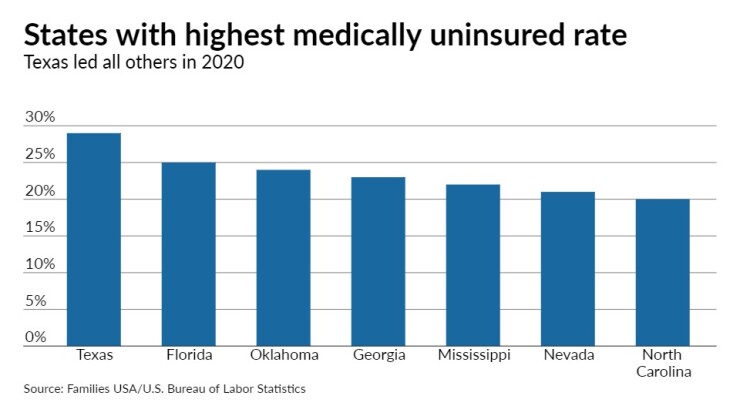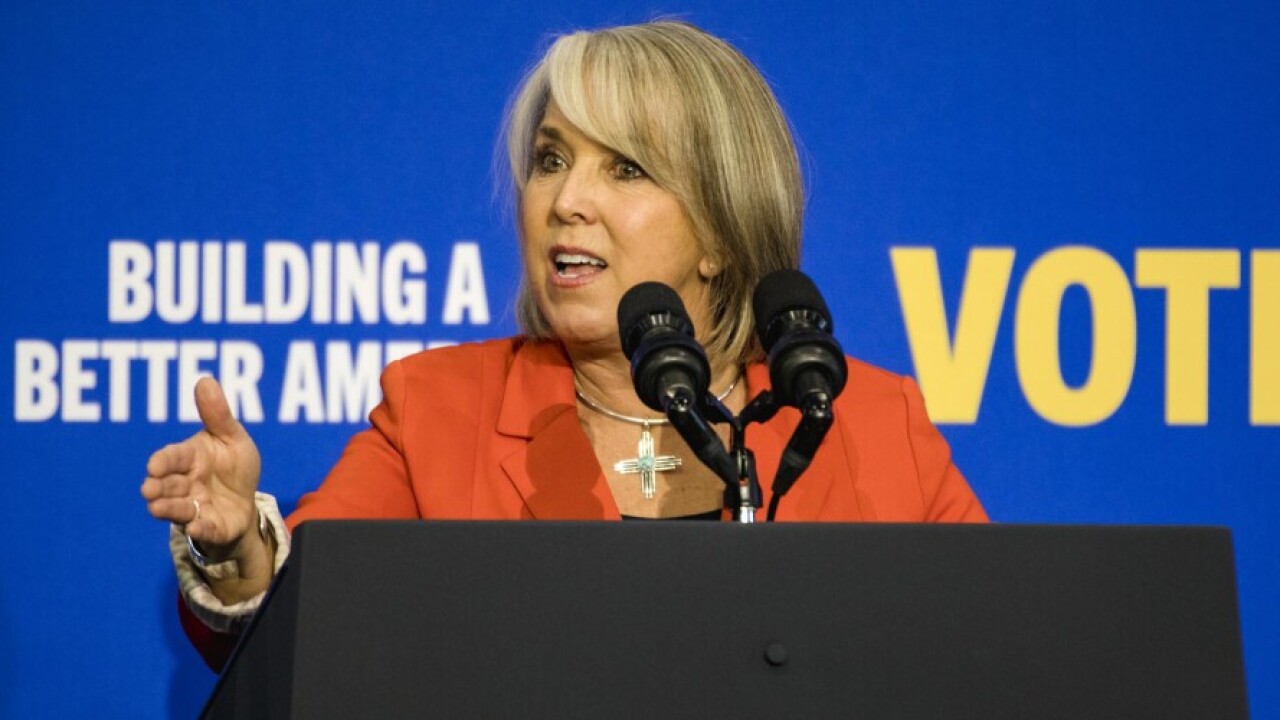Facing the potential loss of $11 billion in federal funding, elected state officials in Texas continue to resist efforts to expand Medicaid coverage to the working poor.
With very little discussion, the Texas House on Thursday rejected a proposal to expand coverage for Texans who have low-paying jobs that do not provide health insurance.
The vote came six days after the Biden administration rescinded the recent 10-year extension of Texas’ 1115 Medicaid waiver that provides about $11 billion of federal funds for hospitals and other healthcare providers in the state. Moody’s Investors Service called the situation a negative credit factor for the triple-A-rated state.

The waiver will now expire in September 2022 instead of September 2030.
“If the federal government and state fail to agree on a waiver extension by September 2022, many children’s hospitals as well as hospitals in high-need urban and rural areas would lose an important source of cash flow provided by the waiver's uncompensated care and Medicaid funding provisions,” said Moody’s analyst Matthew Cahill wrote in a Friday report.
Texas Hospital Association president Ted Shaw told lawmakers and the state’s Republican leaders that his members supported the measure voted down last week. Shaw called the loss of the waiver “devastating to the state’s health infrastructure.”
“Texas’ 10-year waiver extension, worth $100 billion, was hard-fought and critical for the health of Texas,” Shaw wrote in a letter to Gov. Greg Abbott and legislative leaders, denying that the THA supports efforts to force expansion of Medicaid.
“Any assumptions that hospitals’ support of coverage expansion hinged on the waiver extension are misguided and categorically false,” Shaw wrote. “Coverage expansion and an 1115 waiver should work together for Texans. We need both.”
Texas is one of 12 states that has not expanded Medicaid, contributing to the state having the highest uninsured rate in the nation at over 18%, almost twice the U.S. average, Moody’s said.
“Funding from a waiver extension would continue to partially offset costs related to treating the state's higher number of uninsured patients,” Cahill wrote. “Additionally, the elevated unemployment levels stemming from the pandemic will likely cause the number of uninsured and Medicaid-dependent individuals to grow.”
Texas qualifies people with disabilities and adults with children for Medicaid in Texas if they earn $300 per month or less for a family of four, or $150 per month or less for an individual. Adults without disabilities or dependent children do not qualify, regardless of how little they earn.
Abbott, a close ally of Donald Trump, who granted the waiver as president, denounced the Biden administration for rescinding the waiver.
“By rescinding this waiver extension, the Biden administration is obstructing healthcare access for vulnerable Texans and taking away crucial resources for rural hospitals in Texas,” Abbott said in a statement prepared in advance of its release to the press.
“The state of Texas spent months negotiating this agreement with the federal government to ensure vital funds for hospitals, nursing homes, and mental health resources for Texans who are uninsured,” he added. “With this action, the Biden administration is deliberately betraying Texans who depend on the resources made possible through this waiver.”
The rescission of the waiver followed a Jan. 28 executive order from Biden countering efforts by the Trump administration to overturn the Affordable Care Act signed by President Obama in 2010.
“This Executive Order takes critical steps to reverse attacks on and strengthen Medicaid and the Affordable Care Act, so they can continue to provide access to life-saving care for millions of Americans,” the Biden statement read. “The President will also direct federal agencies to reconsider rules and other policies that limit Americans’ access to health care, and consider actions that will protect and strengthen that access.”
Abbott, who as attorney general once joked that his job consisted of little more than suing the Obama administration, has been fighting the Affordable Care Act since 2010. Texas led other Republican-controlled states in challenging the constitutionality of the law.
The U.S. Supreme Court is considering Texas’ challenge to the law after lower courts agreed with the state. Republicans have increased control of the court with the appointment of conservative Amy Coney Barrett to replace the late liberal justice Ruth Bader Ginsburg.
Texas' 1115 waiver, which has been extended twice since 2011, accounts for an average 10% to 15% of revenue for large urban hospitals, according to Moody’s. For smaller, rural hospital districts, Medicaid funding levels at the current rate are needed to offset prior declines in federal-state funding streams as well as challenges related to stagnant population growth, analysts said.
The waiver provides some funding relief to the state with Medicaid accounting for the Texas’ largest budgeted expense at 29% of total spending, according to the National Association of State Budget Officers.
“Without the waiver, the state would face calls to provide more of its own funding to charity-care hospitals to help offset their uncompensated services,” Moody’s said.





